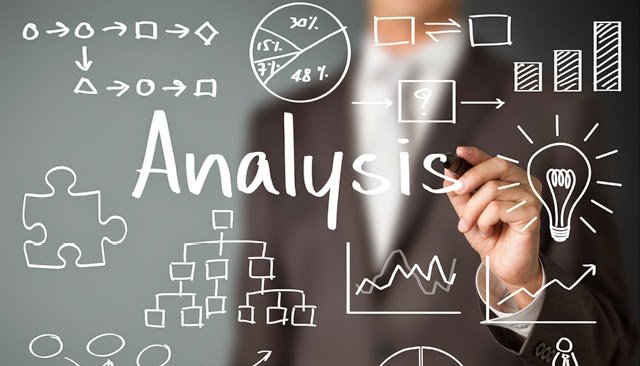According to Dictionary.com website a Business Analyst (BA) analyze the organization and design of businesses, government departments, and non-profit organizations. BAs also evaluate business models and their integration with technology.
Fundamentally, the responsibilities and activities performed by a business analyst are varied, but the most significant objective is always to advance the communication between the stakeholders and the project developers. Business analysts become more successful when they have undergone appropriate requirements training that educate them how to become efficient communicators and how to gather and write the requirements of the stakeholders.
Business analysis has four tiers. These four tiers consist of planning strategically,operating or business model analysis, process definition and design and the technical business analysis.
LEVELS:
There are at least four tiers of business analysis:
Planning Strategically
The analysis of the organization’s strategic business needs of the organization
Operating/Business Model Analysis
The BA definitions and analyzes the organization’s policies and market business approaches
Process Definition and Design
In this level tier refers to the business process modeling (often developed through process modeling and design)
IT/Technical Business Analysis
The BA assists in the interpretation of business rules and requirements for technical system
As you can see, there are a number of characteristics which identify the role of the Business Analyst including:
The analyst works with the business to recognize opportunities for enhancement in business achievements and procedures.
The analyst is involved in the design or modification of business systems or IT systems.
The analyst interacts with the business stakeholders and subject matter experts in order to understand their problems and needs.
The analyst gathers, documents, and analyzes business needs and requirements.
The analyst solved business problems and, as needed, designs technical solutions.
The analyst documents the functional and, sometimes, technical design of the system.
The analyst interacts with system architects and developers to ensure system is properly implemented.
The analyst may help test the system and create system documentation and user manuals.
ALTERNATIVE DESCRIPTIONS
We proposes the following definition of a business analyst: “An interior consultancy position that has responsibility for inspecting industry structures, identifying opportunities for humanizing business systems and correlating the desires of the business with the use of IT.” The International Institute of Business Analysis (IIBA) describes the role as: “a liaison among stakeholders in order to understand the structure, policies, and operations of an organization, and to recommend solutions that enable the organization to achieve its goals.” The Certified Software Business Analyst (CSBA) Common Body of Knowledge defines this as: “uniquely placed in the organization to provide a strong link between the Business Community and Information Technology (IT).”
The role of Business Analyst has evolved from someone who was a part of the business operation and worked with Information Technology to improve the quality of the products and services being delivered by the IT organization to someone who apart from gathering Business Requirements, also assists in Integration and Acceptance Testing, supports the development of training and implementation material, participates in the implementation, and provides post-implementation support. Business Analysts today are also involved in the development of project plans and often provide project management skills when these skills are not available in other project participants.
Related posts
Quick Cook!
Business to Business Marketing – Its Variations in Strategy
Business to business and business to consumer marketing types have basically exactly the same fundamental concepts. Both choose target markets…
Recent Posts
- Chatbots Unveiled: Revolutionizing Customer Engagement in the Digital Era
- Pioneering the Path: Unveiling the Future Trends and Technologies Shaping Content Marketing
- Unveiling the Art of Marketing: Strategies for Success
- The Benefits of Locating Your Business in a Thriving Community
- Navigating the Digital Landscape: How Mobile Marketing Shapes Consumer Behavior
Archives
- February 2024
- December 2023
- September 2023
- August 2023
- July 2023
- June 2023
- May 2023
- April 2023
- March 2023
- October 2022
- September 2022
- August 2022
- July 2022
- April 2022
- March 2022
- January 2022
- December 2021
- November 2021
- October 2021
- August 2021
- June 2021
- May 2021
- April 2021
- February 2021
- January 2021
- December 2020
- June 2020
- April 2020
- March 2020
- February 2020
- January 2020
- October 2019
- September 2019
- August 2019
- July 2019
- June 2019
- April 2019
- February 2019



